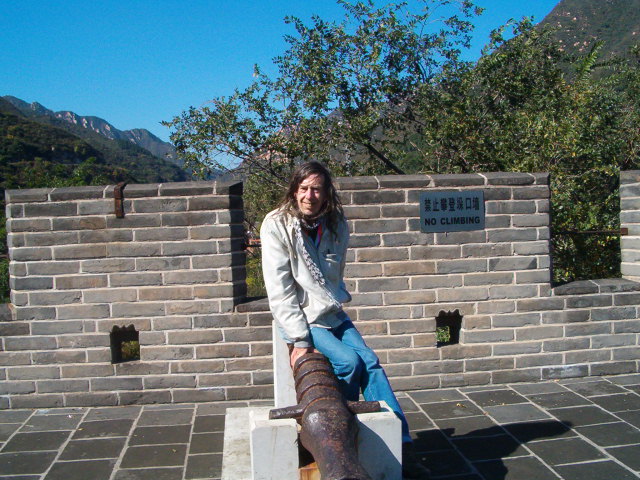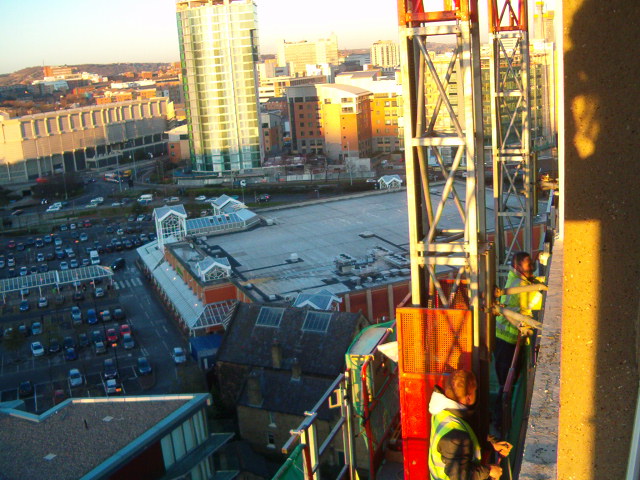This file was generated from gndc.txt
Sheffield held a "Green New Deal" conference on Saturday, 28/02/09. The conference was initiated by "Sheffield Action on Climate Change" and it was held in St. Mary's Church, near to Bramhall Lane football stadium. The conference filtered the participants by the imposition of an attendance fee. Delegates comprised worthies from local government and 'Green Business', environmental activists, radical economists, medical doctors and alternatitive health practioners.

I attended the conference as a skeptic. "Green New Deal" is a fashionable slogan, and much of the political spectrum is willing to sign up to many of the ideas. Much green and environmental campaigning is still following a trajectory built up before the current financial crisis which is shaking the foundations of capitalism. Many activists come from middle class backgrounds and few have worked in the power generation industry nor lived in third world slums. Sheffield has three green Party coucillors, and all represent the 'Central Ward'. This Central Ward has a large population of students (who don't vote often), and former students working in either the universities, healthcare, local government services, media, or I.T. companies.
An age and sex demographic profile of such 'yuppie' areas is generally quite different to the nation as a whole. There is quite a large bulge in the 20-35 age groups and perhaps a little bulge in the over 80's. Other parts of Sheffield will have profiles which look different. Those with large numbers of young families will show a distinct profile, looking like a pyramid. Egypt has a national demographic profile looking very much like a pyramid. Half the population is absurdly young, because they go in for large families.
Gareth Roberts and Jenny Patient introduced themselve and the keynote speaker, Colin Hines of the Green New Deal Group. Colin made his speech in front of a large screen showing a wandering MS Wwindows (TM) logo. He is correct about the severity of the problem but the analysis causes and solutions could be improved. The problems are caused as much by herd behaviour as greed. Economic growth has been the mantra of our leaders (and those of India and China). The American economist Herman E.Daly has described a 'futility point' where the environmental costs of production and disposal start to exceed the benefits of using a product.
The housing market crossed the futilty threshold a long time ago. We have a world where at least three billion live in slums. The great leaders of the West, and even China and India heve been selling the idea that everyone can live in a mock Georgian house and commute by car to a well paid job for big reliable employer like Boeing in Seattle or Japanese car makers in Sunderland. This 'American Dream' was on a collision trajectory with basic resource constraints for many years. About half of the world's urban population live in shantytowns where a Sheffield allotment hut would be a luxury residence. The American housing market ran out of reliable customers. The hype of the leaders was universal home ownership, but the reality was often a reduction of the potential customers for mortgages by impoverishing the working class by tax cuts for the rich and the tolerance of offshore tax avoidance schemes.
After the opening speeches there was a choice of different sessions. I went to one Mark O'Reilly who is into 'green construction'. His presentation was rather good. He was quite sanguine about the severity of the current economic problems. There were Powerpoint slides. It took some time for the computer to work properly. People like Mark should already by jumping out of the box 'Think Globally, Act Locally' by both thinking _and_ acting globally. The 'Open Source' paradigm is the way to go. Green building ideas offer help the 'have nots' as well as the 'haves'.
Lunch was provided to ticket holders. There was a red stripe on conference badges to identify participents entitled to lunch. The food was fine, and plentiful. I took some sandwiches and pizza slices home with me. During this time I spoke to a Green Party veteran from the 1980s when the Green Party polled around 10% in Euro Elections. One of the key Green Party policies at that time was a guaranteed income for all, without having to sign on or be available for work. In an economy where many products are crossing the 'futility point', this makes great sense. It would be better if call center salesmen, road wideners, and financial analysts were paid money to sit at home and not go to work.
I also spoke about drug legalisation and the veteren mentioned Norwich and Brighton where Green Party candidates had been open about supporting harm reduction rather than prohibition. The major political parties attacked the Greens for being 'Soft on Drugs' but people voted Green anyway.
John Smith. University of Sheffield.
Dr Fazlun Khalid IFEES.
Both speakers came up with good radical ideas. Both had known about the causes of the current financial crisis ages ago. John Smith gave the useful warning that it is as yet to early to dance on the grave of capitalism. Fazlun Khalid described 'Islamic Banking' as an oxymoron.
I did not attend final worshops nor the closing session. My digital camera seemed to be running low on batteries, so I called it a day.
The participants were mostly white middle class people. More multiculteralism could be beneficial. Some of the speeches might be shorter if members of the audience did not all speak the same language.
Many activists want everyone to change their lives to beat climate change but they do not necessarily want to participate in new production models based on the world wide information commons. The 'open source' model is best exemplified by Linux and BSD computer operating systems. In speeches There is an emphasis on locally sourced materials and Sheffield has always been well placed for locally sourced construction materials.
When it comes to 'knowledge industry' outputs Sheffield, and the UK in general imports too much from overseas. The 'Powerpoint' computer presentation system is a good example. It is quite hard to reengineer this system from scratch. Most Linux computers seem to have such ubiquitous energy saving features that the screen will quickly blank out unless the lecturer clicks the mouse or presses a key. The basic fact is that most activists who call themselves progressive do much to support one of the World's greatest and most powerful corporations. Microsoft is rapidly seeing off the challange to its domination in China by offering Windows at heavily discounted prices to those netbook manufacturers who started out installing Linux on their computers.
Linux represents voluntary outsourcing. Much of the intensively demanding work is done by small project teams working with e-mail lists and RFCs (Requests for Comments). Some of the project is financed by people discretely using the resources af capitalist employers. England with it's 'long hours culture' is not fertile ground for such developments. A feature of the UK economy is massively failed I.T. projects. This is very shameful for a state which produced Newton, Joule, Maxwell and Dirac. When it comes to computer operating systems, most 'progressive' people use Windows, and if they are in adult education they will have Windows running on the classroom computers. They can hardly call themselves progressive.
There is no real consensus between various ecologists, environmentalists and Greens. For many, activism seems preferable to analysis. Personally I reach for the potassium perchlorate when I hear the phrase 'Grass Roots'.

Home insulation is a hot topic in the Sheffield Campaign against Climate change. This is a questionable policy. Initiatives like this tend to cause landlords to raise rents. There is also the question as to whether certain terraced houses should be demolished rather than insulated. If everyone lived in tower blocks then there would be less roof to insulate. Land would be freed for more parks and a decent cycle network. Some of the freed up land could also be used for urban farms. Local water sources could be channelled into ponds, with turbines installed at the outflow. The UK banking system has had a baleful influence on how we live and work, for decades. Would be flat owners can't get easily loans while finance deals with auto salesmen encourage out of town business parks and motorway commuting. Many environmental protest movements have often chosen the wrong targets. Plane Stupid is not so bad because they climbed the parliament buildings.
Much British housing is described as 'rabbit hutch homes'. There is a carefully nurtured culture of conformity and deference nurtured by the right wing media and money lending institutions. Workers in the building trade are monitored by the compilers of secret 'blacklists'. It is hardly surprising that recent mass protests by unions were against the employment of foreign workers. The more thoughtful types had been weeded out of the workforce by overzealous security.
Whatever the insights of the construction workers, they are unlikely to work on buildings designed by the best British architects, unless they move abroad. England is a bit like Japan. Many home based employers completely discount overseas experience, as unverifiable. Employers ask for CVs and there is a whole industry based on 'buffing up' CVs, but in the end most employers expect everyone to tell lies.
Many of the most prestigious British architects have been more successful overseas, than in the UK. It has to be admitted that large projects are collectivist, rather than individualistic, so most bread and butter architecture is devoted to private housing.